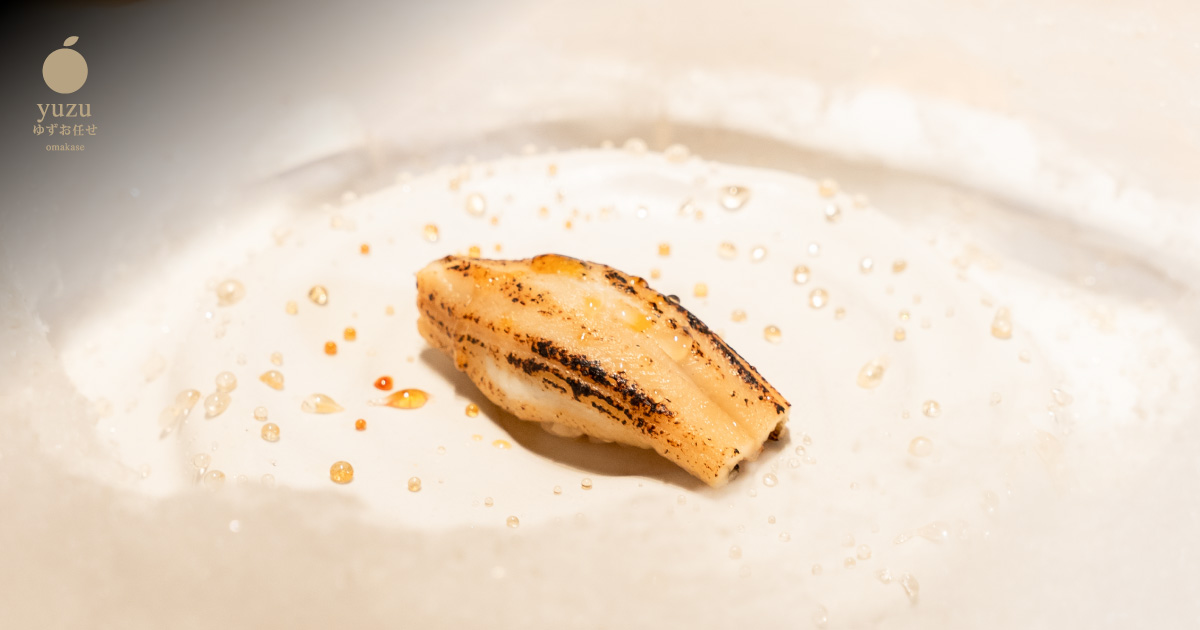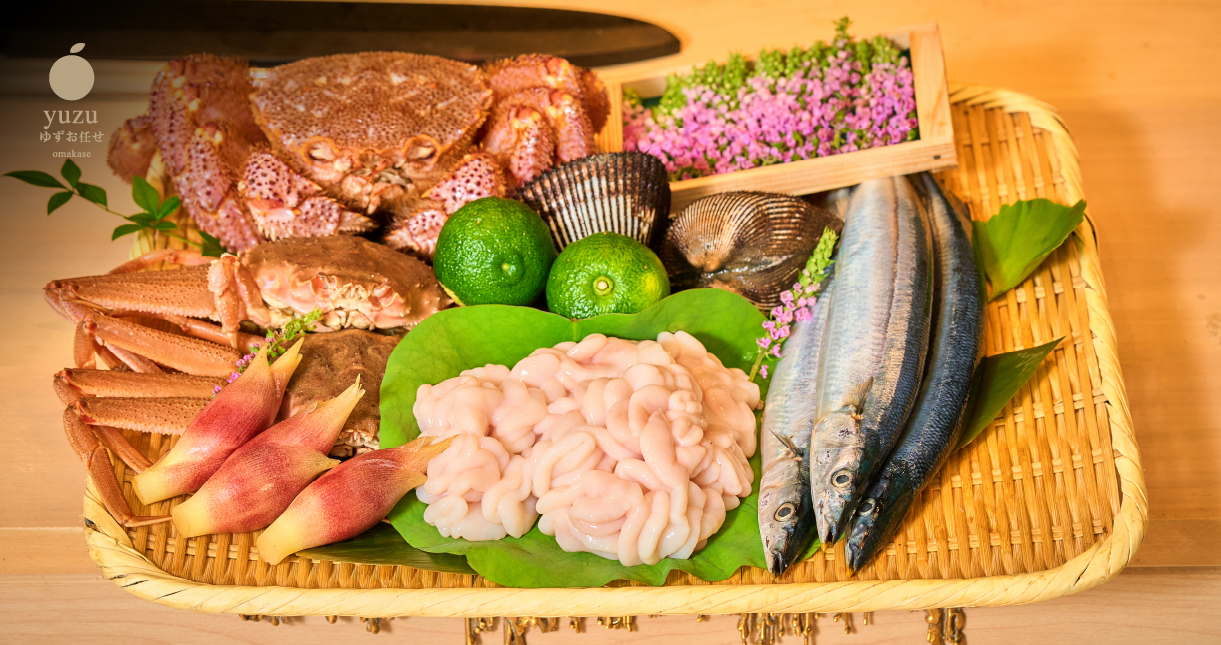
Sustainable Dining: Yuzu Omakase’s Eco-Friendly Practices
Introduction: The Importance of Sustainable Dining In recent years, the concept of sustainable dining has grown in importance as more people and businesses recognize the need to protect our environment. From sourcing ingredients to minimizing waste, sustainable dining practices are vital for promoting a healthier planet. For restaurants, this means adopting eco-friendly measures that reduce their carbon footprint while offering fresh, high-quality food to customers.
Well-Being ● 2024 Sep 30
Sustainable Dining: Yuzu Omakase’s Eco-Friendly Practices
At Yuzu Omakase, we are deeply committed to sustainability, both in the way we source our ingredients and how we manage our operations. Our goal is to deliver a luxurious, high-quality dining experience that aligns with the principles of well-being—not just for our guests, but for the planet as well. By integrating eco-friendly practices into every aspect of our restaurant, we contribute to a more sustainable future while continuing to offer the finest Japanese cuisine.
In this article, we will explore the sustainable dining practices at Yuzu Omakase, from sourcing ingredients responsibly to minimizing waste, and how these efforts help promote a healthier planet.
1. Responsibly Sourced Ingredients: The Foundation of Sustainable Dining
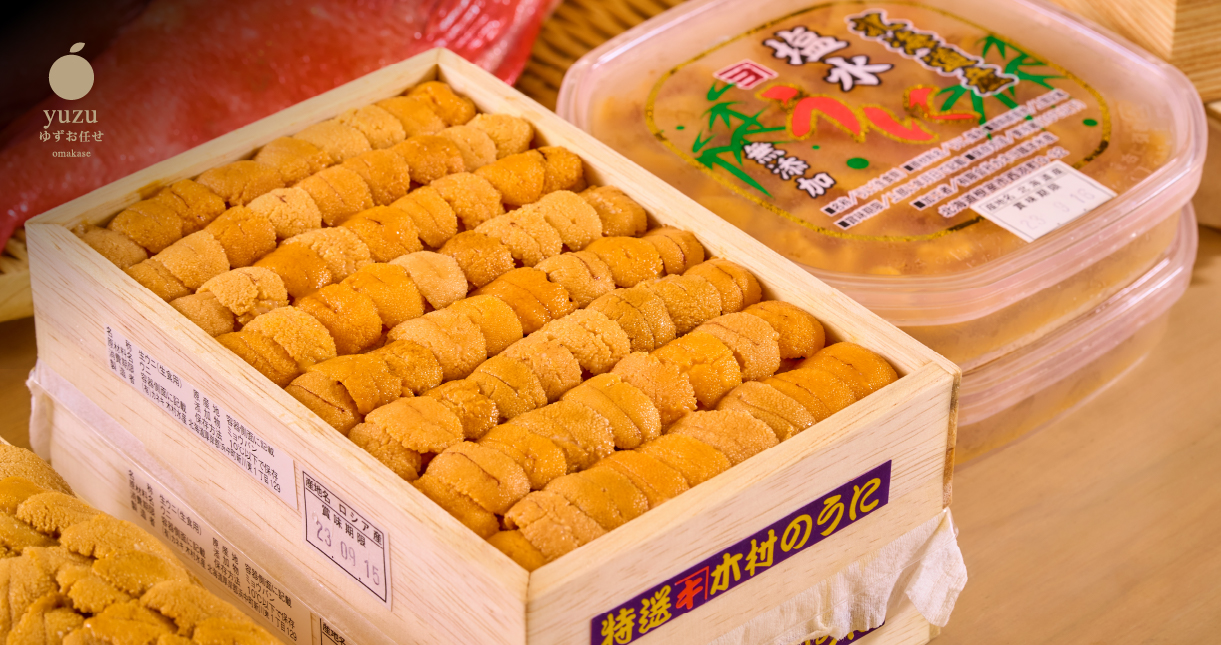
At the heart of sustainable dining is the responsible sourcing of ingredients. The seafood and other fresh ingredients served at Yuzu Omakase are carefully selected not only for their quality and flavor but also for their environmental impact. We are committed to sourcing our ingredients from suppliers who share our dedication to sustainability, ensuring that our dishes reflect both our culinary standards and our environmental values.
Sustainable Seafood Sourcing
As a restaurant that specializes in fresh sushi and seafood, we recognize the importance of supporting sustainable fishing practices. Overfishing and harmful fishing methods have caused significant damage to marine ecosystems, leading to the depletion of fish populations and the destruction of habitats. To counter this, we work with suppliers who are committed to using sustainable and responsible fishing methods.
At Yuzu Omakase, we prioritize ingredients certified by organizations such as the Marine Stewardship Council (MSC)and the Aquaculture Stewardship Council (ASC), which set strict standards for sustainable seafood. This ensures that the seafood we serve is sourced in ways that protect marine life and promote the long-term health of our oceans.
For example, our fresh uni (sea urchin) and other seafood delicacies are carefully chosen from fisheries that practice responsible harvesting, helping to preserve marine ecosystems for future generations.
Local and Seasonal Ingredients
In addition to sustainable seafood, we place a strong emphasis on sourcing local and seasonal ingredients wherever possible. By working with local farmers and suppliers, we reduce the carbon footprint associated with transporting ingredients over long distances. This not only supports the local economy but also ensures that the ingredients we use are fresh and at their peak flavor.
Seasonal ingredients are a key part of the omakase experience, as they allow us to craft dishes that reflect the natural cycles of the year. By focusing on ingredients that are in season, we can provide our guests with a dynamic and ever-evolving menu that highlights the best of what nature has to offer, while also reducing our environmental impact.
2. Waste Management: Reducing Food Waste and Supporting Sustainability
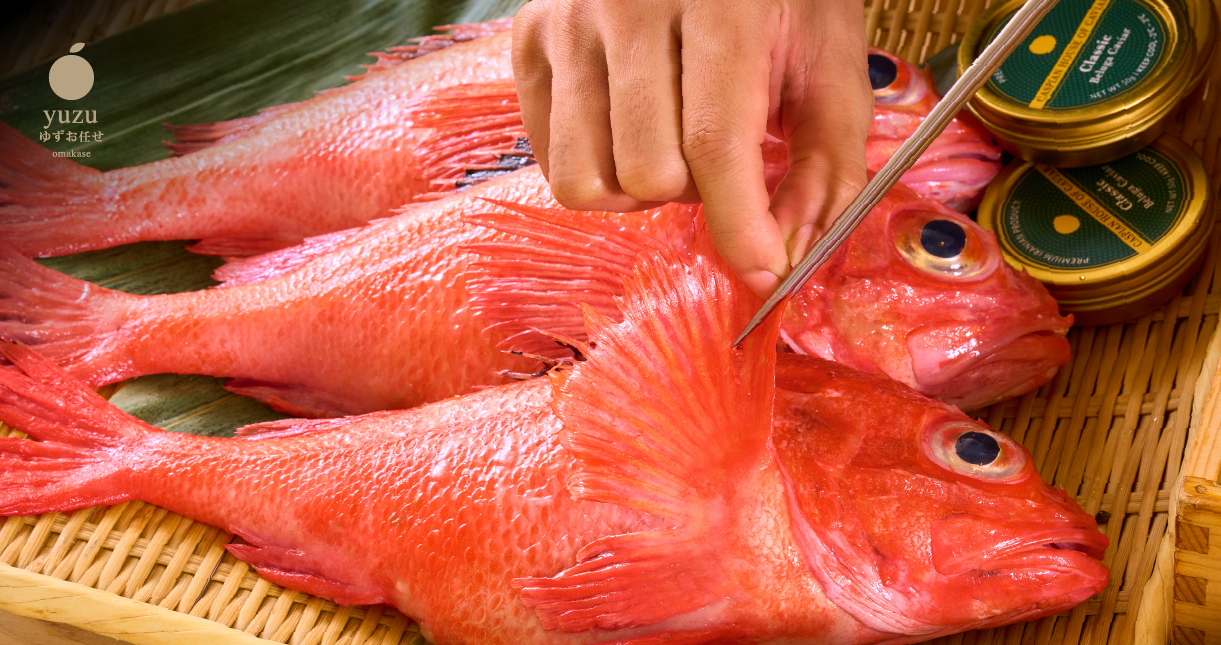
Waste management is a crucial aspect of sustainable dining, and at Yuzu Omakase, we are dedicated to minimizing food waste as part of our commitment to the environment. In the culinary world, food waste contributes significantly to greenhouse gas emissions, as discarded food decomposes in landfills and releases methane, a potent greenhouse gas.
At Yuzu Omakase, we take a proactive approach to reducing waste in several key ways:
Utilizing Whole Ingredients
One of the core principles of omakase dining is making the most of every ingredient. In line with this philosophy, our chef uses a "nose-to-tail" or "fin-to-scale" approach, where every part of the fish or vegetable is used to create multiple dishes. For example, the bones of fish may be used to make a rich broth, while vegetable trimmings may be repurposed into garnishes or sauces. This practice not only enhances the depth of flavors in our dishes but also helps reduce food waste.
Portion Control and Customization
Another way we reduce waste is by serving dishes in carefully measured portions. Since omakase is a personalized dining experience, the chef curates the meal based on the diner’s preferences and appetite, ensuring that nothing goes to waste. This approach allows us to avoid over-preparing food, as the chef adjusts the portions and selection of dishes based on what the diner can comfortably enjoy.
At Yuzu Omakase, we are also mindful of customizing the experience for guests with dietary preferences or restrictions, further reducing the likelihood of food being discarded.
Composting and Recycling Initiatives
In addition to minimizing food waste, we are committed to managing any unavoidable waste in an eco-friendly manner. We work with local partners to ensure that organic waste, such as vegetable peelings and food scraps, is composted rather than sent to landfills. Composting helps turn food waste into valuable nutrients that can be returned to the soil, promoting sustainable agriculture.
We also implement recycling practices in our restaurant, ensuring that materials such as glass, plastic, and cardboard are properly sorted and recycled. By reducing the amount of waste sent to landfills, we are able to minimize our environmental impact and contribute to a more sustainable future.
3. Energy-Efficient Operations: Reducing Our Carbon Footprint
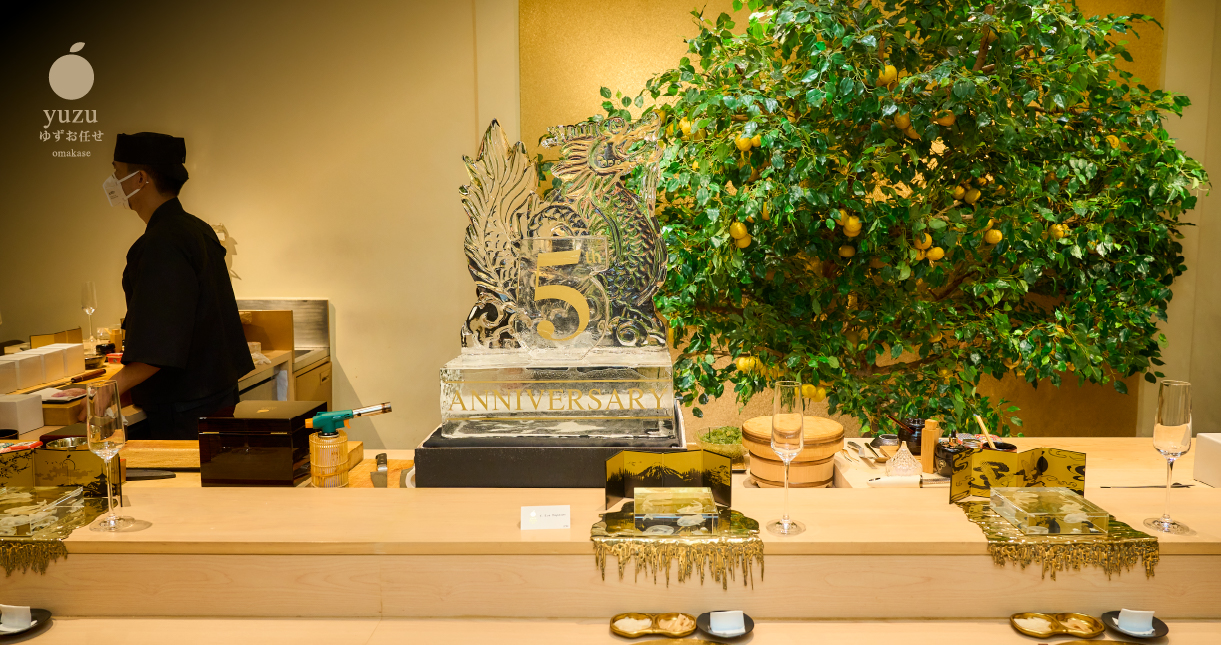
At Yuzu Omakase, our commitment to sustainability extends beyond the kitchen. We have implemented energy-efficient practices throughout our restaurant to reduce our carbon footprint and operate in a more environmentally responsible way.
Energy-Efficient Kitchen Equipment
The kitchen is one of the most energy-intensive areas of any restaurant, but at Yuzu Omakase, we have taken steps to minimize our energy consumption. We use energy-efficient appliances and equipment, such as induction cooktops and high-efficiency refrigeration units, to reduce electricity usage while maintaining the highest standards of food safety and preparation.
Eco-Friendly Lighting and Heating
In addition to our energy-efficient kitchen, we have incorporated LED lighting throughout the restaurant, which uses significantly less energy than traditional lighting. LED lights also have a longer lifespan, reducing the need for frequent replacements and cutting down on waste. Similarly, our heating and cooling systems are designed to be energy-efficient, ensuring that our guests remain comfortable while minimizing energy consumption.
Water Conservation Practices
Water conservation is another important aspect of sustainable dining. At Yuzu Omakase, we take care to use water efficiently in both food preparation and cleaning processes. We have installed low-flow faucets in our kitchen and restrooms, helping to reduce water usage without compromising hygiene or cleanliness. By conserving water, we are able to lessen our environmental impact and contribute to the broader goal of sustainability.
4. Sustainable Packaging and Takeaway Options
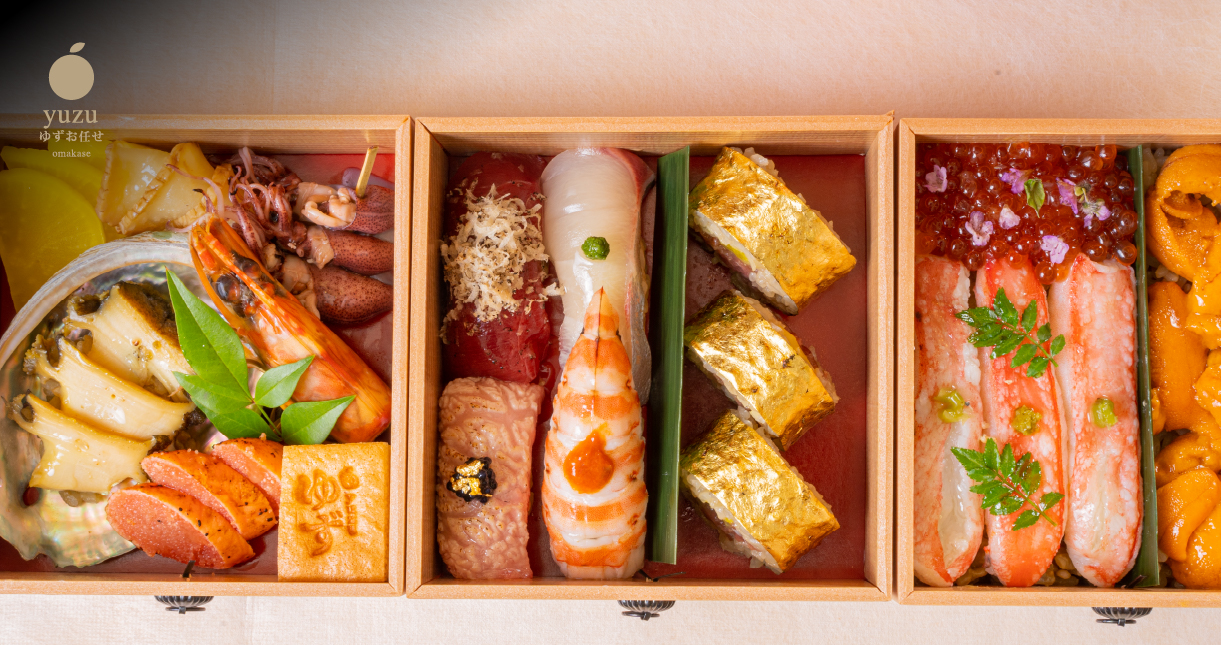
While the focus of our dining experience is on providing a memorable meal within the restaurant, we also offer takeaway options for guests who prefer to enjoy their meal at home. In line with our commitment to sustainability, we have taken steps to ensure that our packaging materials are as eco-friendly as possible.
Biodegradable and Recyclable Packaging
We use biodegradable and recyclable packaging for our takeaway orders, minimizing the environmental impact of disposable materials. These eco-friendly options reduce the amount of plastic waste generated and help prevent pollution, ensuring that even when you’re enjoying Yuzu Omakase at home, you can do so in a way that supports a healthier planet.
Encouraging Reusable Containers
Whenever possible, we encourage our guests to bring their own reusable containers for takeaway orders. This not only reduces waste but also aligns with our broader mission of promoting sustainability and eco-friendly practices.
5. Promoting Sustainability through Education
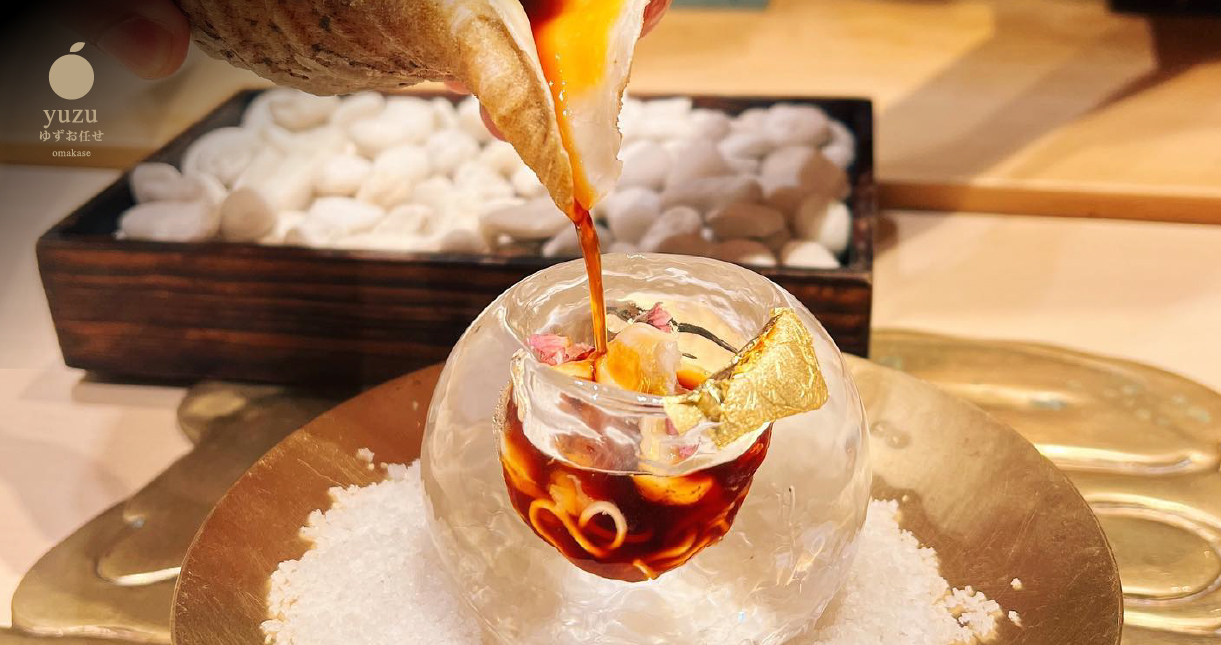
At Yuzu Omakase, we believe that sustainability is a shared responsibility, and part of our mission is to raise awareness about the importance of eco-friendly dining practices. We are always happy to educate our guests on where our ingredients come from, how they are sourced, and the steps we take to reduce our environmental impact.
By fostering a deeper understanding of sustainable dining, we hope to inspire our guests to make more environmentally conscious choices in their own lives. Whether it’s supporting local farms, choosing sustainably sourced seafood, or reducing food waste at home, every action contributes to the larger goal of creating a healthier planet.
Conclusion: Experience Sustainable Dining at Yuzu Omakase
At Yuzu Omakase, sustainability is more than just a trend—it’s a core part of who we are. From responsibly sourced ingredients and waste reduction initiatives to energy-efficient operations and eco-friendly packaging, we are committed to creating a dining experience that supports both well-being and the environment.
We invite you to join us in celebrating the beauty of sustainable dining. Book your seat online today and enjoy a meal that is not only crafted with the finest ingredients but also with a deep respect for the planet.

RELATE






